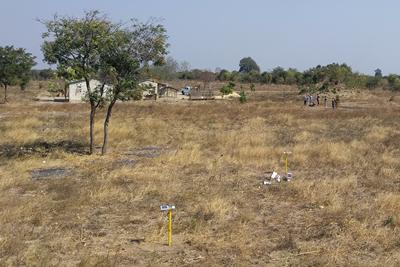Sensor modelling assists farmer decision making to help improve global food security

Chemistry researchers at the University of Southampton have deployed sensor networks in Zambia that are helping farmers in decision making around crop planting and harvesting.
The international research, which is driven by an industrial partnership with biotechnology company Syngenta, is using research data to produce agricultural scenarios that help predict farming outcomes.
Reliable agricultural scenarios could help farmers address global issues of food security and nutrition, as growers are challenged by climate change, unpredictable weather and lack of resources.
Principal Investigator Professor Jeremy Frey, part of the Computational Systems Chemistry group, explains: “This project focuses on improving outcomes in primary crop production by using advanced technologies to produce efficiency benchmarking for both productivity and environmental performance.
“The team have undertaken research in both the UK and Zambia. Data is obtained using Internet of Things (IoT) based sensor networks implemented by the University of Aberystwyth for the local data and this is integrated with climate, weather and soil data from wider country/global data sources.
“The data is analysed and categorised, and from it scenarios are drawn and then used to produce a semantic modelling system. This is not about us telling farmers exactly how and when they should plant their crops, it is about illustrating scenarios that take into account as many external factors as possible that can be used to support farmers’ decision making.”
The three-year project also involves AGCO, a company in the design, manufacture and distribution of agricultural equipment field. It has been funded though Innovate UK under the Agri-Tech Initiative and the Department for International Development (DIFID).
Agricultural science, or agriscience, is one of the eight technologies where the UK can link research strength to practical application to farming practices and the food industry. Jeremy predicts there will be more of this type of project going forward, which combines data science and the semantic web to help improve outcomes.
“As the population increases, the global demand for food rises each year making agriculture a pertinent industry to advance through technology,” he says. “We need to increase food supply, and the resilience of the supply, therefore realistic and implementable ways need to be identified to maximise crop yield that will work in different places in the world, and that’s what this project has achieved.”
The University of Southampton is also involved in the wider application of digital technologies in the food chain as partners in the Engineering and Physical Sciences Research Council (EPSRC) Digital Economy Internet of Food Things Network+ (see www.foodchain.ac.uk).